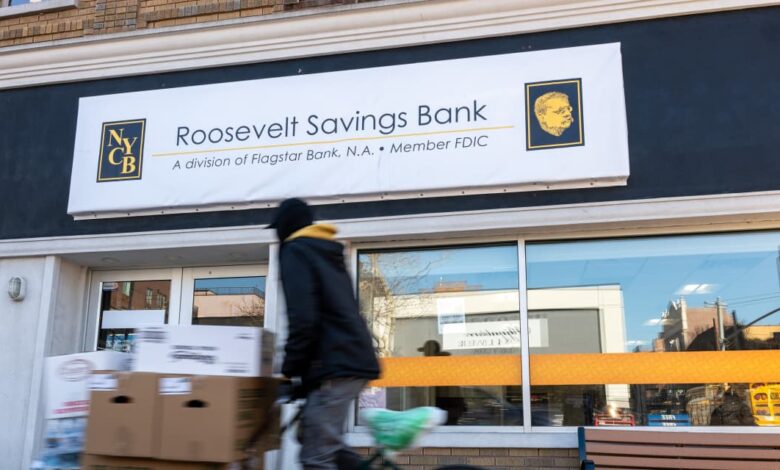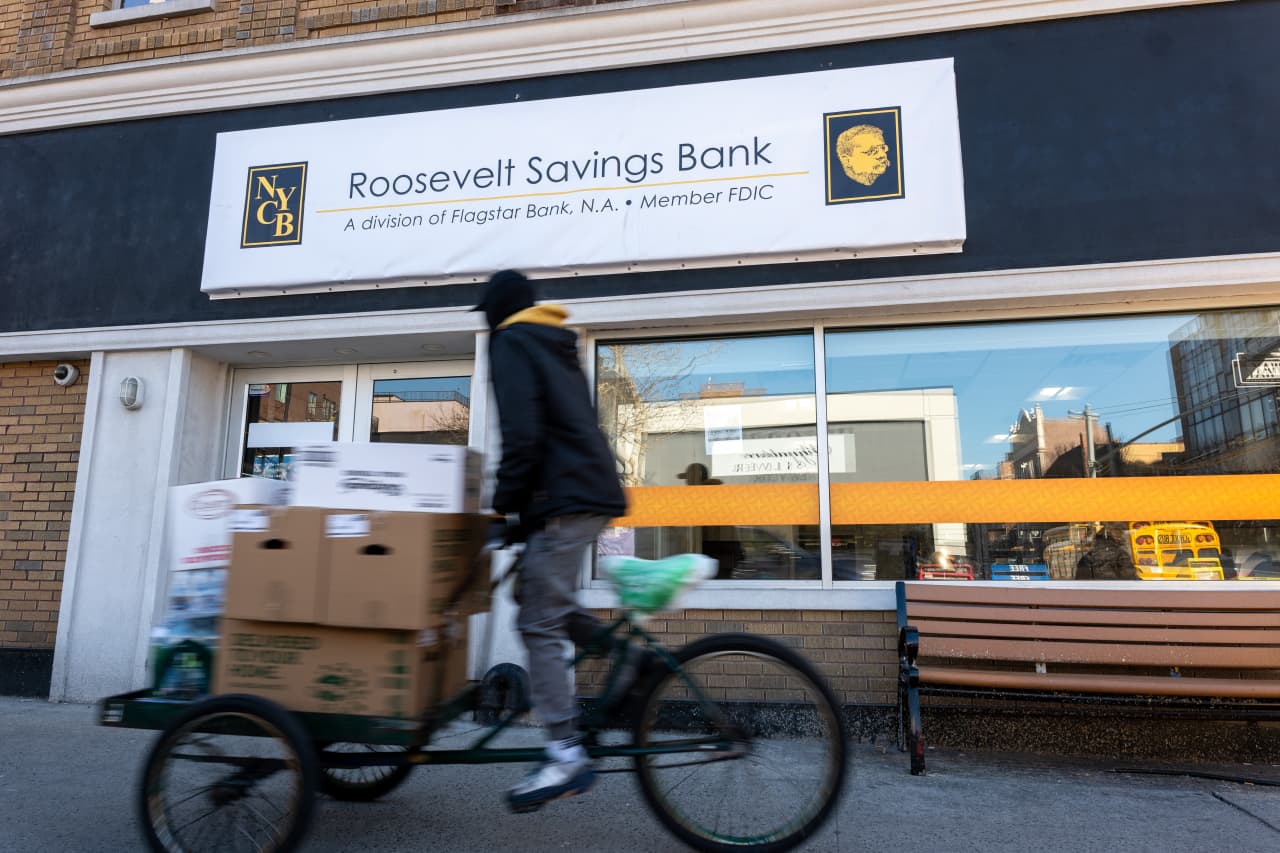New York Community Bank’s stock falls on CEO change, ‘material weakness’ notice

New York Community Bancorp Inc. on Thursday announced an immediate leadership shakeup, including a new CEO, after the bank booked a big hit to its profits last year, said it had “material weaknesses” in its accounting protocols and disclosed other financial-reporting issues.
The disclosures mark the latest drama for the Long Island, N.Y.-based bank, which has struggled with its exposure to an ailing commercial real-estate market. Shares of the company — which operates Flagstar Bank in several states and picked up some of the leftovers from the failed Signature Bank last year — dropped 21.7% after hours.
New York Community Bancorp
NYCB,
said it had appointed Alessandro DiNello as its new president and chief executive effective immediately, after Thomas Cangemi resigned from the roles after 27 years at the company. Former Flagstar CEO DiNello was appointed as NYCB’s executive chair earlier this month, having previously served as nonexecutive chair of its board. Cangemi will remain on the board.
The leadership change came with some resistance among NYCB’s board. Hanif Dahya also resigned as presiding director and as a board member, saying in his resignation letter that he “did not support the proposed appointment” of DiNello.
Marshall Lux has been named presiding director of the board, effective immediately.
“It is my mandate as president and CEO, alongside our board, to continue our transformation into a larger, more diversified commercial bank,” DiNello said in a statement.
“While we’ve faced recent challenges, we are confident in the direction of our bank and our ability to deliver for our customers, employees and shareholders in the long term,” he said. “The changes we’re making to our board and leadership team are reflective of a new chapter that is underway.”
In a filing on Thursday, the company said that following a review, a goodwill impairment charge resulted in a $2.4 billion decrease to its fourth-quarter and annual net income.
It also said that as management evaluated the bank’s internal financial controls, it identified “material weaknesses” related to a loan review. The deficiencies, it said, resulted from “ineffective oversight, risk-assessment and monitoring activities.”
Additionally, NYCB said it was unable to file its annual report on time, as it adjusts figures related to the purchase of the former Signature Bank’s assets and other matters. It noted in the filing that it “does not currently anticipate” that its financial statements in its 2023 annual report will differ significantly from those in an amendment dated Feb. 29.
The rise of remote and hybrid work during the pandemic, along with higher interest rates from the Federal Reserve, have upended the market for office space and commercial real estate and complicated refinancing. New York Community Bank is among the biggest lenders for multifamily housing — such as apartment buildings with multiple units — both in New York City and nationwide.
Shares of the bank got slammed last month after it reported a surprise quarterly loss and slashed its dividend. Management at the time said the company had set aside more money to cushion against “office-sector weakness.”
During a conference call this month, however, executives pointed to what they said was Flagstar’s recovery after the housing bust and Great Recession from 2007 to 2009. They said trends in deposits had been “resilient” and added they would “continuously” review their loan portfolio.
“If we must shrink, then we’ll shrink,” DiNello said then. “If we must sell non-strategic assets, then we’ll do that. We’ll do whatever it takes.”
Christopher Marinac, research director for Janney Montgomery Scott, said Thursday’s material-weakness announcement “has to do with stress-testing — not borrowers missing payments.”
“They have been classifying loans for higher interest rates, and the borrowers’ financial condition is weaker in the higher-interest-rate environment,” Marinac said during a phone interview with MarketWatch. “I still think it is a solvable problem. It is going to take time.”
Marinac continues to rate NYCB’s shares a buy. “We feel the price-to-tangible-book [ratio] is still very attractive,” he said. “It is a noisy situation day to day. We still think the company will make money this year.”
KBW analyst Christopher McGratty said the material-weakness disclosure amounts to an “added layer of uncertainty” for the bank, and that his firm remains on the sidelines because of it. He stuck to a market-perform rating for the stock.
“The immediate focus is twofold, in our view: 1) file 10-K, and 2) provide a strategic update once the loan-portfolio review is complete,” McGratty said.
Karen Finnerman, chief executive of Metropolitan Capital, told CNBC that a disclosure of material weakness is bad for any company, but it’s particularly concerning for a bank that “had a terrible chapter” recently.
“This can’t be good, for so many reasons,” she said.
Earlier this month, Moody’s downgraded the bank’s credit rating to junk, citing the difficulties in commercial real estate and rent-regulated multifamily properties.
“Significant and unanticipated loss on [NYCB’s] New York office and multifamily property could create potential confidence sensitivity,” the firm said.
Steve Gelsi contributed to this story.
Source link





